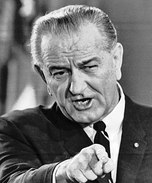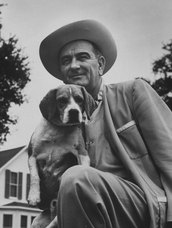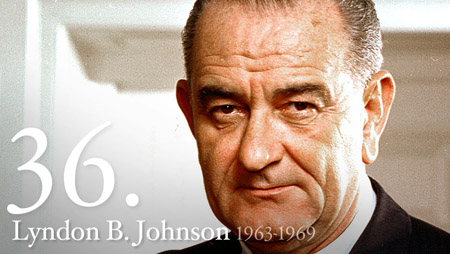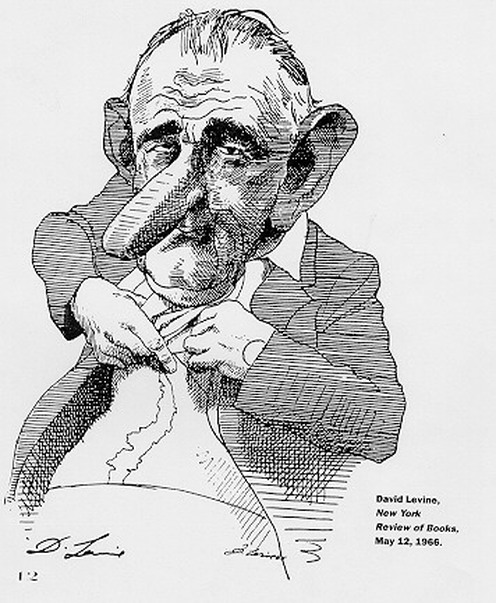
"If one morning I walked on top of the water across the Potomac River, the headline that afternoon would read: "President Can't Swim."'
- Lyndon B. Johnson
- Lyndon B. Johnson
Lyndon B. Johnson

•A wealthy Texan rancher
•Was Kennedy’s Vice President and became President after his assassination
•Was reelected for second term
•Entire time in office embroiled in the Vietnam war (was discredited and didn’t even run against Nixon)
•Championed the civil rights bill
•Formed the Peace Corps called VISTA which was part of his “war on poverty” and also part of his “Great Society”
•Wanted to create more equality for blacks
Summary: Lyndon Baines Johnson (August 27, 1908 – January 22, 1973), often referred to as LBJ, was the 36th President of the United States (1963–1969), a position he assumed after his service as the 37th Vice President of the United States (1961–1963). He is one of only four people who served in all four elected federal offices of the United States: Representative, Senator, Vice President, and President.
•Was Kennedy’s Vice President and became President after his assassination
•Was reelected for second term
•Entire time in office embroiled in the Vietnam war (was discredited and didn’t even run against Nixon)
•Championed the civil rights bill
•Formed the Peace Corps called VISTA which was part of his “war on poverty” and also part of his “Great Society”
•Wanted to create more equality for blacks
Summary: Lyndon Baines Johnson (August 27, 1908 – January 22, 1973), often referred to as LBJ, was the 36th President of the United States (1963–1969), a position he assumed after his service as the 37th Vice President of the United States (1961–1963). He is one of only four people who served in all four elected federal offices of the United States: Representative, Senator, Vice President, and President.


